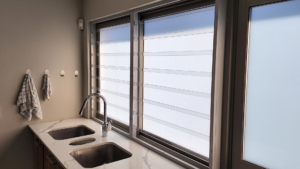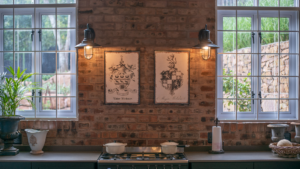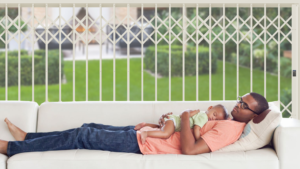Almost 90% of seniors prefer to age in one place. For financial reasons, some people must continue to live independently or with family for as long as possible. Staying at home, on the other hand, can be stressful for both seniors and their families. You can’t always be there in person to ensure the safety of an elderly loved one who is ageing in place.
A home monitoring system for seniors can provide the connection and protection that everyone requires to give them peace of mind. Continue reading to find out how to select the best monitoring devices for seniors, how to set them up, and how your home security system can provide the safety and comfort you require.
If there is a need or no one can be reached, the call centre can contact the police or fire department. We recommend this type of service for all security system users, but it’s especially useful if you’re a carer living far away from your family member or friend—unless you plan to be on call 24 hours a day, seven days a week for fires, floods, and accidentally left-open windows.
Although there is no one-size-fits-all solution, we believe that everything on the following list could be beneficial for people of all ages and health conditions.
1. Smart smoke detectors
Everyone should have working smoke detectors throughout the house, but there is particular concern about how easily an elderly person can hear an alarm—and how quickly they may respond to it. Smart smoke detectors not only emit an audible siren inside the home, but they can also send smartphone alerts to friends, neighbours, and carers.
Smart smoke detectors, which are available in hardwired and battery versions, respond quickly and reliably to actual danger—not every time someone cooks bacon or takes an extra-long hot shower. When it detects smoke or carbon monoxide, it issues a loud voice alert to notify you of the danger’s location.
2. Smart contact sensors
Contact sensors, which are small devices that can be attached to any door, can alert you when doors (or windows) are safely shut, opened, or left open for an extended period. When the sensors are installed on the front and back doors, you will be able to detect who is coming and going. You can put them on windows to receive an alert if someone forgets to close the living room window before bed, or on the refrigerator door to ensure your loved one remembers to eat.
3. Smart locks
Everyone forgets to lock the door from time to time. Smart locks make it simple to check the status of doors and, if necessary, lock or unlock them remotely. A smart lock is especially useful if you are concerned about a loved one who wanders, or if you simply want to ensure that the house is locked up for the night. Smart locks are also useful if the person ageing forgets their keys or has visitors such as family, friends, neighbours, carers, delivery people, service providers, or others. Although many smart locks include a keypad, we do not recommend them for people who have memory problems.
There are advanced smart locks that attach to an existing deadbolt, housing to the internal side of the door and look and act the same as before, allowing your loved one to continue to use a key if they prefer. Their built-in smarts enable you to remotely lock and unlock the door, and you can receive smartphone alerts whenever the door is accessed or left open. If your loved one ever forgets or misplaces their key, you can use the same technology to remotely unlock the door for them.
4. Cameras and monitoring
Although you probably don’t want to see what your loved ones are doing all the time, security cameras can be useful when you’re caring for someone remotely. A live video feed notifies you when someone moves around the house, alerts you to who is approaching the front door, and even documents a fall for medical professionals. Experts warn that installing a camera in someone else’s home should not be taken lightly and should be done in collaboration with the person who will be living with them. Some people find a camera to be intrusive, and it can be terrifying for anyone suffering from memory loss.
A smart doorbell camera is essential if your loved one receives visitors and packages. It enables you to screen anyone who comes to the door from anywhere in the world, regardless of whether the visitor rings the doorbell. When someone rings the doorbell, the senior at home hears a normal doorbell sound, but you also receive a smartphone notification. You can then choose to answer the door remotely or simply keep track of who is coming and going—and how long they are staying. Video doorbells are fantastic, especially if the person living with you has mobility issues.
Conclusion
The best time to consider a monitoring system is before you need one. When a senior in your life expresses a desire to age in place, start talking about getting an alarm system.
Gently remind them of the numerous potential threats to seniors’ security, as well as the numerous benefits and conveniences that installing a system can provide. Respect their priorities and concerns throughout the process.
If you install sensors after a health or safety incident, make sure your loved one understands that the system is there to support their independence, not because you doubt their ability to live independently.



